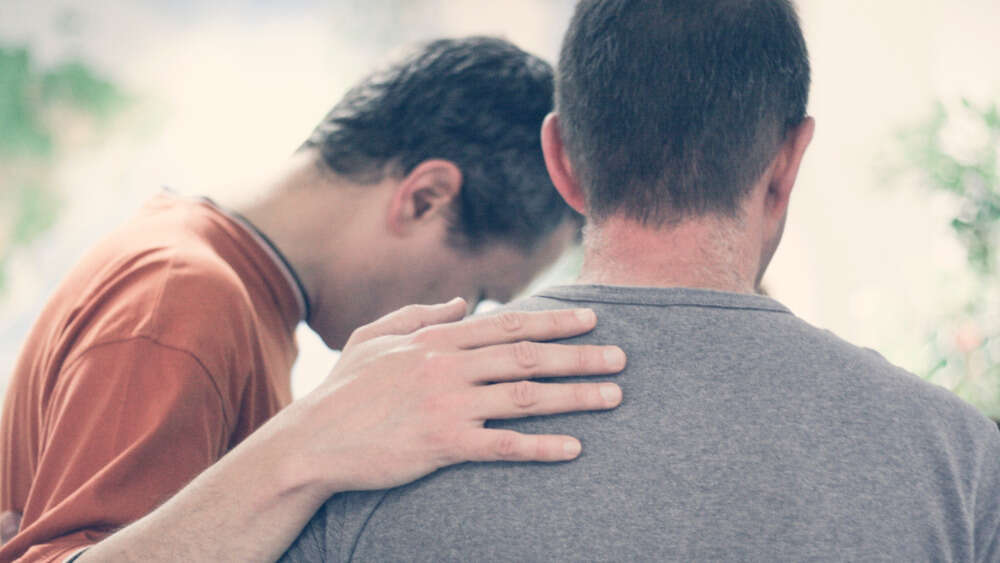Two chapters into the latest book by one of my favourite authors, I stopped reading. I’d reached saturation point. It was yet another personal development book with a long list of changes I needed to make to become a better person.
Returning it to the library, I went in search of something completely different. I settled in the true crime section where I found a book that has challenged and impacted me more than any book in years.
Think No Evil is the story of a local milk-truck driver in Nickel Mines USA who shot ten girls in an Amish schoolhouse and then committed suicide.
This year in the United States, on average there’s been a school shooting every week, but we rarely hear about them. However, the 2006 Nickel Mines shooting captured media attention across the globe; not because of the number of deaths but because of the extraordinary response of the victims’ Amish community.
Reading that story, I realised I knew nothing about such radical forgiveness.
On the day of the tragedy, parents who’d lost their daughters were contacting the gunman’s wife to check that she was okay. They understood that she and her children were also dealing with unimaginable grief. They wanted her to know that even in their own sorrow, they held no ill feelings and recognised that the gunman must have been living with significant turmoil to lead him to such horrific actions.
Reading that story, I realised I knew nothing about such radical forgiveness. I’ve been fortunate not to have experienced the type of tragedy that requires such forgiveness. The instances I could recall where I’ve had an opportunity to show forgiveness seemed lame by comparison.
The forgiveness practiced by our Amish brothers and sisters seems totally at odds with a world where we love a good ‘payback’, where we have to get even when we’re wronged.
The Amish practice radical forgiveness because they believe that God’s way is the best way to live. They believe forgiveness is ultimately about self-care.
But it’s not just a matter of faith. Studies have shown that, among other things, learning to forgive has been proven to:
· Lower blood pressure
· Improve your immune response
· Reduce anxiety & depression
· Improve your sleep
One of the authors of Think No Evil (Jonas Beiler, an Amish-raised counsellor), made two key observations about forgiveness:
· Forgiveness is a decision to release yourself from anger, resentment, hate, or the urge for revenge, despite the injury you suffered
· Forgiveness is letting go of hope for a different past
That second definition really spoke to me. How much emotional energy have I wasted on things that have happened in the past, times when I’ve been wronged, situations that I can’t change.
Beiler reflects, “If we let the energy we need today get used up dwelling on the past, we will eventually run out of steam.”
There’s an amazing teaching moment that came out of the Nickel Mines tragedy that shows us how to role model forgiveness. During the hostage situation, the gunman asked all the boys to leave the classroom, so they all gathered in a field at a safe distance from the schoolhouse. Some of the boys had sisters amongst the hostages.
In the chaos that followed, as the police and emergency services were frantically attending to the victims, an older man from the Amish community stood with the boys in the field. “We must not think evil of this man,” he told these young boys.
In some cultures, boys are indoctrinated into a cycle of generational hatred and retribution, but this Elder was determined to show these boys a different way to live. He wanted to let them know that even though bad stuff happens, things that seem totally unfair, you can free yourself from a lifetime of hatred and revenge.
Celebrations like Father’s Day can surface in us hope for a different past …
Later, Beiler explains that the idea of ‘forgive and forget’ can be unrealistic. How can you forget when you’ve experienced tragedy or been seriously wronged? Sometimes forgiveness is a daily decision, releasing us from the human response to feel anger and seek revenge.
Celebrations like Father’s Day can surface in us hope for a different past. If only Dad had spent less time at work, if only he hadn’t left us, if only … But Beiler encourages us to not expend today’s energy on things in our past that we cannot change.
One of the greatest role models of forgiveness is Jesus. Hanging on the cross, he looked out upon those who had tortured and beaten him and prayed that his Heavenly Father would forgive them.
Is there someone you need to forgive? Are there people in your world who need to see radical forgiveness role modelled? Decide that you’re not going to carry around unresolved anger and hurt for past wrongs that you’ve suffered. If appropriate, take the opportunity to model the process of forgiveness to your kids. In many respects, it will be counter-cultural, but it’s a key lesson that will set them up for life.
Robert Garrett is a blogger and author of the book More Like The Father.
Email This Story
Why not send this to a friend?


